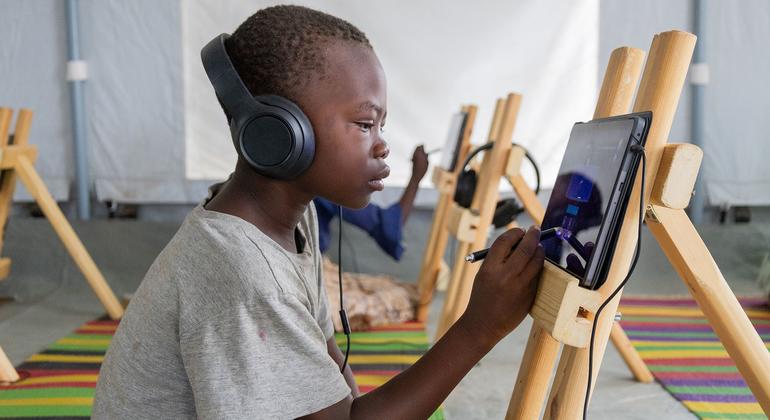Education is positioned as a fundamental pillar for development at both individual and social levels, as highlighted by António Guterres, Secretary-General of the UN, on the occasion of International Education Day. Guterres emphasized that learning is a basic human right and the foundation for the growth of societies and economies. In his message, he stressed the need to ensure access to quality education, insisting that humanity must be at the center of educational systems.
Despite technological advancements and their transformative potential for students and teachers, Guterres also warned about the risks associated with the development of artificial intelligence (AI). “The enormous rewards are accompanied by some discouraging risks,” he said, urging to keep human intent and human rights at the center of this technological evolution.
This International Day celebration focused on the opportunities and challenges that AI presents in the field of education. Audrey Azoulay, director-general of UNESCO, called for increased investment in the training of both teachers and students. She emphasized that the implementation of AI in schools should follow clear ethical principles, aiming to complement the human dimensions of learning, not replace them.
Views on the use of AI in education vary between countries. In high-income nations, more than two-thirds of high school students already use generative AI tools; however, only a small fraction of educational institutions have official guidelines on their use. Additionally, the use of technologies in classrooms faces restrictions in various countries, with an increase in policies banning mobile phones in schools.
Access to inclusive and high-quality education remains a crucial challenge. Globally, 251 million children and youth are out of school, due to factors such as gender, geographical location, and conflicts. A recent study reveals that almost one-third of students have experienced physical violence in schools, and one in ten has been a victim of cyberbullying, highlighting the need to create safe and inclusive spaces for all.
Guterres concluded his message by calling for ensuring that all technology users have the tools and knowledge necessary to apply it ethically and safely. He reiterated that the future of education should focus on people, seeking to promote learning that enriches entire communities and promotes sustainable development.
Source: MiMub in Spanish
